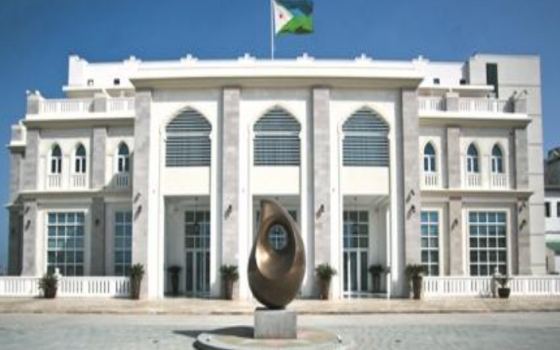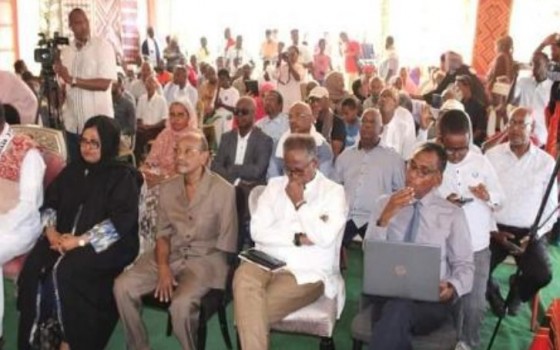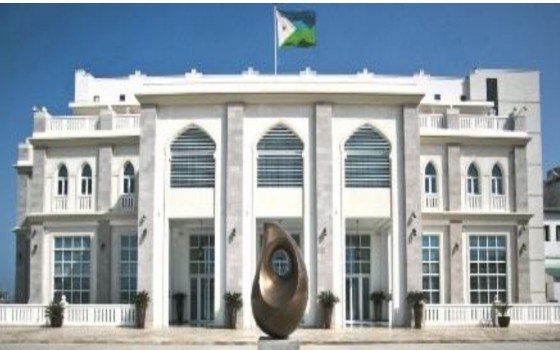
The Council of Ministers approves the state’s estimated general budget for the year 2024

- admin
- Saturday , 16 December 2023 21:43 PM GMT
Under the chairmanship of the President of the Republic, Head of Government, Mr. Ismail Omar Guelleh, the Council of Ministers held its 21st session on Tuesday, December 12, 2023, which was devoted to ratifying the following texts following extensive discussions.
Ministry of Budget:
1. A draft financial law related to the approval of the state’s estimated general budget for the fiscal year 2024.
The state budget for the next fiscal year 2024 reaches 152.49 billion Djiboutian francs.
This budget witnesses a slight decrease of 1.282 billion Djiboutian francs, (0.8%) compared to the amended Finance Law for the fiscal year 2023. It was prepared in 2024 in an international economic context that is still characterized by many uncertainties and inflationary pressures that remain high.
The 2024 budget is also characterized by a clear improvement in domestic revenues and a slight decrease in expenditures, mainly linked to a decrease in current expenditures (personal spending, service items).
For fiscal year 2024, the First Finance Law introduces a series of new innovative measures in a national context for the resumption of economic activity. In addition to the new measures that generate additional tax revenues, the Tax Administration will strengthen its performance and continue to increase collections by pursuing more stringent oversight.
In this regard, the discretionary budget for 2024 includes several measures aimed at (1) expanding the scope of the International Monetary Fund (IMF) to include sales and services destined for export, (2) eliminating the exemption from the fixed minimum tax (IMF) for semi-public companies. In the oil sector in which the state has a majority share, (3) expanding the scope of the value-added tax to include self-employed professions, (4) amending the tax imposed on international and regional air transport tickets (5) amending changes in the deadlines for submitting income tax returns (6) Reviewing the minimum limits for exercising the right of transactions by different customs authorities, with in particular tightening penalties according to different types of crimes.
It should be noted that the Finance Law for the year 2024 stipulates, for the first time, the creation of 150 jobs in the budget allocated to employing people with special needs, as an embodiment of what the President of the Republic announced during the Fifth National Disability Week.
As in previous years, this draft finance law stipulates a focus on respecting budgetary discipline, strengthening ex-ante monitoring, implementing structural reforms aimed at enhancing the stability of the macroeconomic framework, continuing measures aimed at combating poverty, promoting inclusion and human capital development, economic transformation and strengthening State action.
Ministry of Higher Education and Research:
2. A draft law related to approving the financial accounts of the Higher Institute of Health Sciences for the year 2022
The financial accounts for the financial year 2022 of the Higher Institute of Health Sciences amounted to 285,778,872 Djiboutian francs in revenues, and 245,723,994 Djiboutian francs in expenses, with a net profit of 40,054,878 Djiboutian francs.
The result for the fiscal year 2022 saw an increase linked to an increase in private income, especially from registration fees (+16.7 million Djiboutian francs), continuing education fees (+5.8 million Djiboutian francs) and lecture hall rental (+1.1 million Djiboutian francs).
As for expenditures, they decreased from 271.6 million Djiboutian francs in 2021 to 245.7 million Djiboutian francs in 2022, while this decrease is linked to a decrease in operating expenses, especially purchases, external fees, and social fees, with the cessation of granting scholarships and a decrease in vacant positions for teachers.
The number of employees at the Higher Institute of Health Sciences is estimated at approximately 53 male and female employees.
It should be noted that during the year 2022, the Higher Institute of Health Sciences made investments of more than 9.2 million Djiboutian francs in the acquisition of software, materials, tools, computer equipment and laboratory reagents.
It is also worth noting that the institute received, during the academic year 2022, 320 trainee students distributed across 14 sectors and specializations.
Ministry of Labor in charge of formalization and social protection:
3. A draft law related to approving the financial accounts of the National Social Security Fund for the fiscal year 2021
The financial accounts for the fiscal year 2021 of the National Social Security Fund amounted to 34.1 billion Djiboutian francs in terms of revenues, and 30.5 billion Djiboutian francs in the area of expenses, with a net profit of 3.6 billion Djiboutian francs.
The Fund’s budget for the fiscal year 2021 witnessed a decrease of 14% compared to the fiscal year 2020, due to the effects of the Covid-19 pandemic, but the total income recorded an increase, and it consists mainly of contributions to the public system -régime générales- (20.6 billion Djiboutian francs), and the system Private -régime particulier - (5.1 billion Djiboutian francs), financial products (461 million Djiboutian francs) in addition to other administrative products.
It appears that expenditures during the fiscal year 2021 also recorded an increase compared to the previous year, and this increase included expenditures related to various systems (+15.16%), amounting to 11.1 billion Djiboutian francs, as well as employee expenditures, which increased by about (+10.1%), up from 3.6 One billion Djiboutian francs in 2020 to 3.9 billion Djiboutian francs in 2021.
In turn, financial assets increased from 2.9 billion Djiboutian francs in 2020 to 3.8 billion Djiboutian francs in 2021, and this increase is linked to the increase in securities.
It should be noted that, in the year 2021, the National Social Security Fund invested an amount of 2.9 billion Djiboutian francs, in the acquisition of software and licenses, construction, office equipment, information technology and general installations, in addition to up to 2.1 billion Djiboutian francs, related to fixed assets under process. , especially the construction of the new hospital.




















No Comments Found